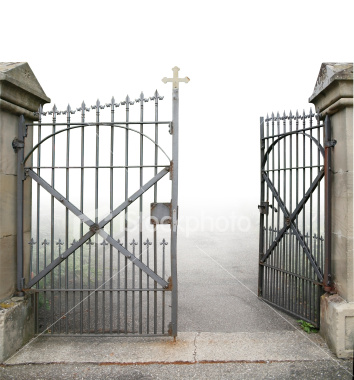
The Only CHARACTERS
EARLY FORMED FOREVER.
[An extract from an address to the students of Phillip's Academy, Andover, on the day of prayer for colleges.]
THERE were two young men at Yale College, many years ago, both deliberating as to what position they should take in regard to the religious interest then prevalent in the college.
They took a walk together; they queried with each other whether or not they should call on President Dwight.
One of them was in favor of calling, the other was doubtful.
They came to the gate of the President's house.
"Will you go in?" said one.
"I think I will."
"And will you go in?" said the other.
"Not tonight."
At the gate they separated.
One went in, the other went on.
The one who called on the President became a pious man; the one who refused to call was confirmed in his iniquity, lived an irreligious and scandalous life, died, and, in the significant language of the Bible, "was buried."
At that gate they parted morally.
They continued to go further and further from each other, The probability is that they are now moving further and further from each other, the one upward to greater and greater glory, the other downward to lower and lower shame.
In one minute, a young man lifts the gate, and the floods of error flow through, and never cease their flow.
In the language of the dramatist,—
"There is a tide in the affairs of men,
Which, taken at the flood, leads on to fortune;
Omitted, all the voyage of their life
Is bound in shallows and miseries."
That is the language of Shakespeare.
God says:
"Choose you this day whom you will serve.
If the Lord be God, serve him; if Baal, serve him."
This is the dignity and the greatness of the human soul.
The Maker of heaven and earth comes down to every individual soul, and says: "Here is the course prescribed in the Bible: there is the course prescribed by the world.
If the course of the Bible be right, follow it: if the course of the world be right, follow it.
You have reason, you have conscience: the matter is committed to your own choice.
Choose which you will do. Choose today, for tomorrow it may be too late."
Tomorrow the Master of the house may have risen up and shut the door.
And now the question comes, If this be so, what shall I do?
There is the old advice given by the Rabbi Eliezer, "Repent one day before you die."
But I do not know when I am to die.
"You may die tomorrow: therefore repent today, and that may be one day before you die."
Here is the solemn lesson, my friends.
In one minute, I may put forth a choice, which will secure my everlasting good.
In one minute, I may put forth a choice, which will secure my doom forever and ever, as the doom of wretchedness and woe.
After that minute, friends may plead, but it shall be all in vain.
Seize, then, the present hour, seize the present minute, and unite yourselves at once to the cause of goodness, truth, and God.
—Edward A. Park, D.D.